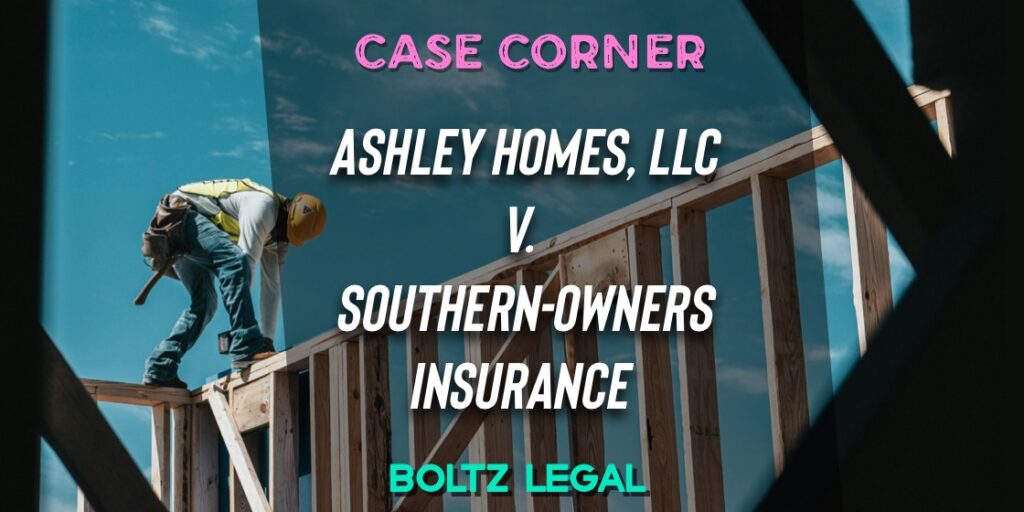Property Ownership and Exclusion Analysis in Construction Defects Case
FLWSUPP 3208ASHL
Insurance – Commercial General Liability – Exclusions – Property Ownership and Contractor’s Work – Priority of Coverage
4th Judicial Circuit, Clay County, September 24, 2024
Case No. 2022-CA-000703
Judge: Steven B. Whittington
This case addresses Southern-Owners Insurance Company’s duty to defend Ashley Homes, LLC, in lawsuits brought by homeowners alleging construction defects. The court analyzed exclusions for property damage occurring during ownership and the contractor’s completed work, ultimately granting Southern-Owners’ motion for partial summary judgment.
Case Background
Ashley Homes served as the general contractor for six single-family homes, later sold to the plaintiffs. Homeowners filed complaints alleging construction defects and damages to their properties. Ashley Homes sought coverage from its commercial general liability (CGL) policy with Southern-Owners, which denied coverage based on policy exclusions.
Southern-Owners moved for summary judgment, arguing its policy excluded coverage under two provisions:
Exclusion for Property Owned by the Insured (“Property You Own”).
Exclusion for Damage to the Insured’s Work (“Your Work”).
Ashley Homes countered with a cross-motion for summary judgment.
Key Issues and Court Findings
1. Property Ownership and the “Property You Own” Exclusion
- The policy excluded damage to property owned by the insured.
- The court found that Ashley Homes owned the homes during construction, as confirmed by warranty deeds, building permits, and certificates of occupancy.
- Applying the “Property You Own” exclusion, the court ruled that damages occurring during Ashley’s ownership were not covered.
2. The “Your Work” Exclusion
- The “Your Work” exclusion barred coverage for damage to the insured’s completed work unless the policy contained a subcontractor exception. Ashley’s policy lacked this exception.
- The court held that all post-completion damages were excluded, even if caused by subcontractor defects, as the exclusion explicitly applied to the insured’s work.
3. Duty to Defend and the Eight Corners Rule
- Florida’s “eight corners” rule limits the analysis of an insurer’s duty to defend to the allegations in the complaint and the terms of the policy.
- The court noted two exceptions:
- Uncontroverted Facts: Undisputed evidence not alleged in the complaint but essential to coverage determinations.
- Facts Not Normally Pled: Relevant details typically omitted from complaints.
- Applying these exceptions, the court examined public records confirming Ashley’s ownership, reinforcing Southern-Owners’ position.
4. Priority of Coverage
- The court analyzed priority of coverage under Ashley’s subcontracts, which required subcontractors to name Ashley as an additional insured under their policies.
- Southern-Owners’ policy was excess to the primary coverage provided by subcontractor policies. Ashley failed to prove it lacked defense coverage from these insurers, invalidating its argument.
Conclusion
The court granted Southern-Owners’ motion for partial summary judgment, finding that exclusions for property ownership and contractor’s work precluded coverage for damages. Additionally, the court denied Ashley’s cross-motion, citing the priority of coverage provisions and Ashley’s failure to establish its claims.
Key Takeaway:
This case highlights the importance of carefully reviewing policy exclusions and subcontractor agreements in construction-related insurance disputes. Properly drafted exclusions and priority of coverage clauses can significantly limit an insurer’s obligations.
Today’s Insight:
“Details create the big picture.”

